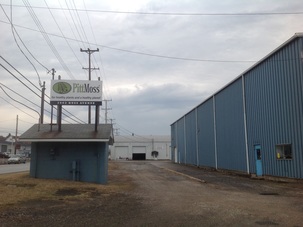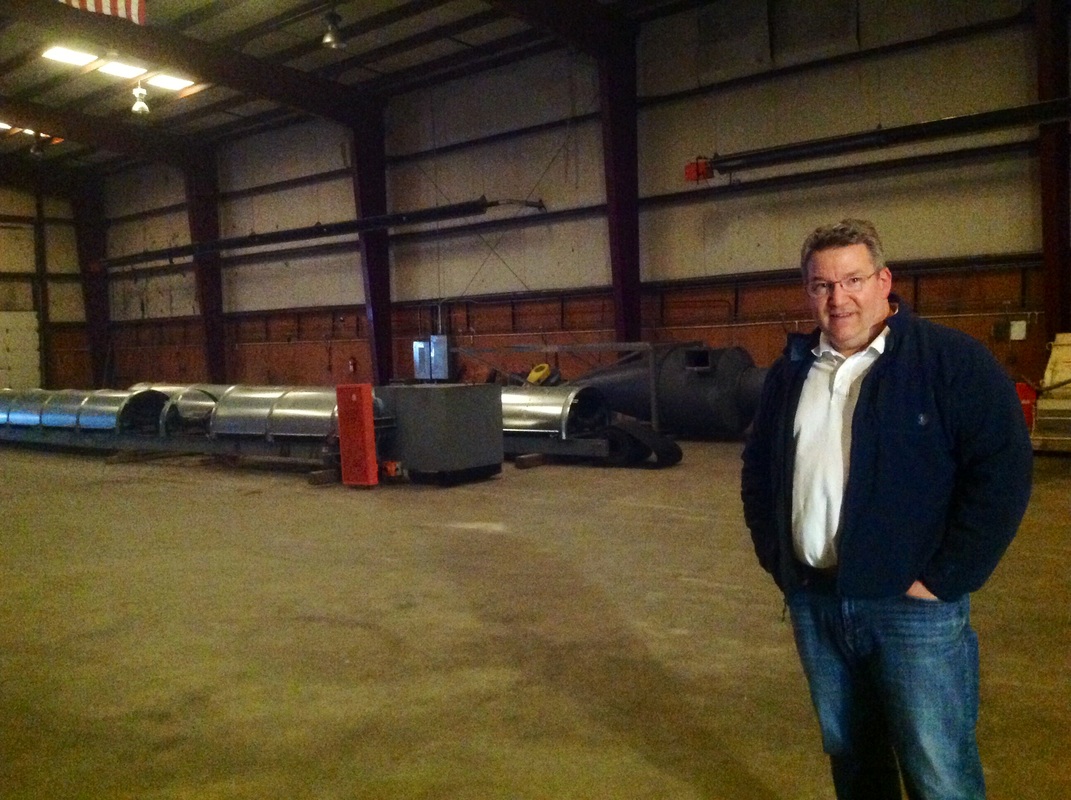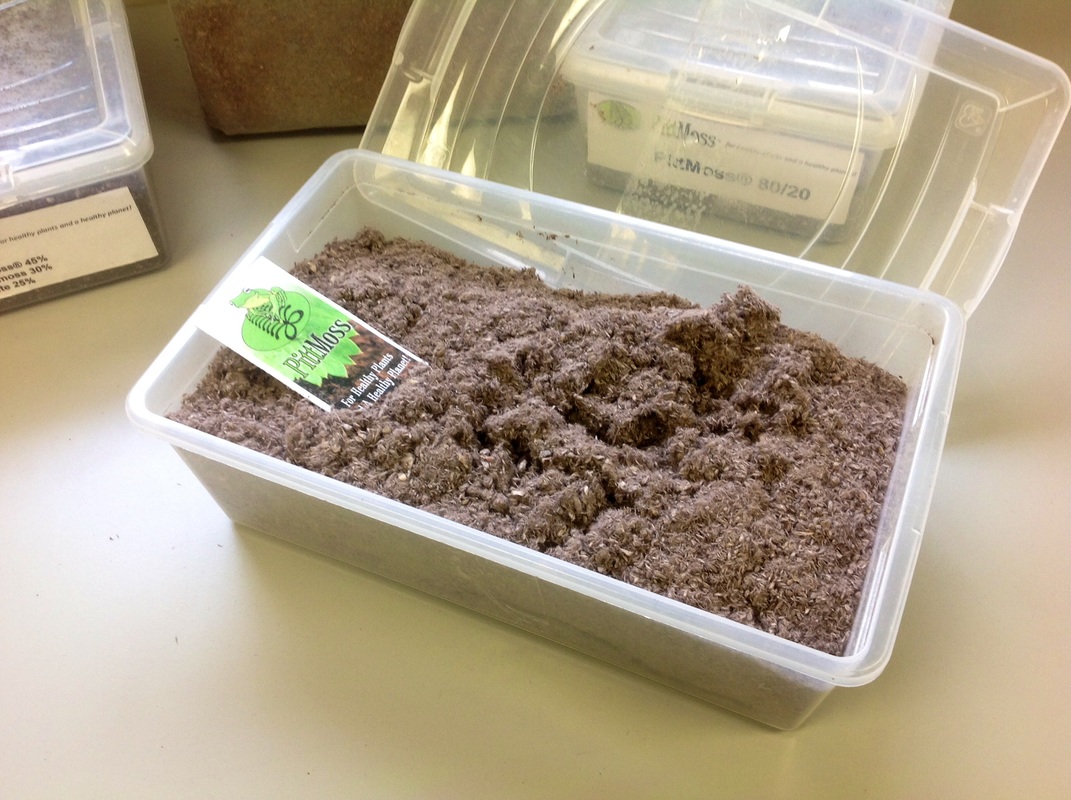 advertisement
advertisement Mont Hanley, founder and CEO of Pitt Moss, said the episode featuring Pitt Moss will air at 9 p.m. Friday, April 17, but he was unable to offer additional details about the appearance.
The TV series features a panel of successful investors and entrepreneurs, or "sharks," who consider pitches from people seeking investments for their businesses or products. If interested, the sharks invest their own money to fund those ideas.
 advertisement
advertisement Pitt moss, he said, is a growing media made from recycled paper and organic additives that is replacing Canadian sphagnum peat moss. About 1.1 million to 1.2 million tons are imported each year from Canada, harvested from important wetlands that help us control carbon in our atmosphere.
“They absorb far more carbon than any other habitat on the planet,” he said.
Hanley said we’re throwing a way as much paper today as 30 years ago, with 40 percent of landfills made up of paper. He said they currently get their paper from companies that recycle it, but hope to someday set up a system to collect paper from the community.
“We actually throw away 25 million tons of paper per year in this country,” he said, “and I’ve always believed that taking these peat bogs is just insane. I mean, they are habitats that actually help us live on this planet and we’re destroying them to fill flower pots, it just makes no sense.”
The company was originally named Nupeat, but several years ago the executive director of a North American cartel that produces peat moss reached out to the company via fax to let them know they had ownership of the trademark name and would pursue legal action if he continued to use the name “peat.”
“They did us a favor,” Hanley said.
The fax gave him time to percolate on a new name and he would eventually settle on Pitt Moss.
He remembers someone telling him, “you know what? Pittsburgh is really getting a good reputation. They didn’t say anything about moss. There’s Spanish Moss, Irish Moss,…what about Pittsburgh Moss.”
Hanley was living in Pittsburgh then, working for Visit Pittsburgh, trying to recruit conventions to the David L. Lawrence Convention Center. It was right about the time the U.S. secured the G20 Summit with President Obama and Pittsburgh was making a good reputation for itself.
Hanley was born in Gary, Ind. and grew up not too far from the steel mills there. Prior to visiting, the one fact he knew about Pittsburgh was that the city was the headquarters for U.S. steel. After visiting and walking around downtown, he saw the city as so much more.

When the team started their original research, florists who believed in Pitt Moss offered land and equipment for lease at $1 per year for two years. In exchange, those companies were given company shares.
Fast forward to February, when they closed on some investments, tore down their demo plant and moved equipment into the new building in Harmony.
Hanley said the building, formerly occupied by Homeland Security and the U.S. Coast Guard, is in the perfect location to area highways and offers just the right warehouse space for production at 10,000 square feet.
He looked at more than 80 buildings in the five-county area before stumbling upon the misplaced listing on West Virginia’s Craigslist.
“It really is probably one of the best buildings in the area,” Hanley said, adding that he’s interested in the local history here, particularly the story of Old Economy Village. “It’s a great heritage and I’d love to be a part of it at some point.”
Hanley said the company plans to add new jobs to the area, but are still in development mode, working to prepare for high traffic on their website, set up the warehouse with more equipment and upgrades, and continue trials.
Pitt Moss was recently awarded a D-2 PA grant from the Pennsylvania Department of Community and Economic Development, which aims to help promote products made in Pennsylvania.
Businesses are already using the product and reporting great results. A grower in Lancaster County was given a sample and started a trial in October. Plants thrived using half their usual water usage, and shaved two to three weeks off production time compared to their counterparts. Another company, North Creek Nurseries, has used Pitt Moss to grow native perennials that prevent erosion and keep river banks and creek beds from collapsing.
In addition to Pennsylvania, greenhouses and nurseries in Michigan, Florida and New Jersey—places that make up one-third of the overall greenhouse soil market in the nation—have tried the product through commercial trials with proven results, Hanley said.
The Pennsylvania Recycling Market Centers has given Pitt Moss funding to do more trials with vegetables—tomatoes and cucumbers—in the next couple of months.
“Everything we’ve ever done, we’ve always tested,” Hanley said. “We take not just the material itself and send it off to a lab for elemental composition, but we also take the plant material that grows in the soils…everything is safe.”
Sign up for our weekly newsletter. Like Ambridge Connection on Facebook and follow us on Twitter.









 RSS Feed
RSS Feed